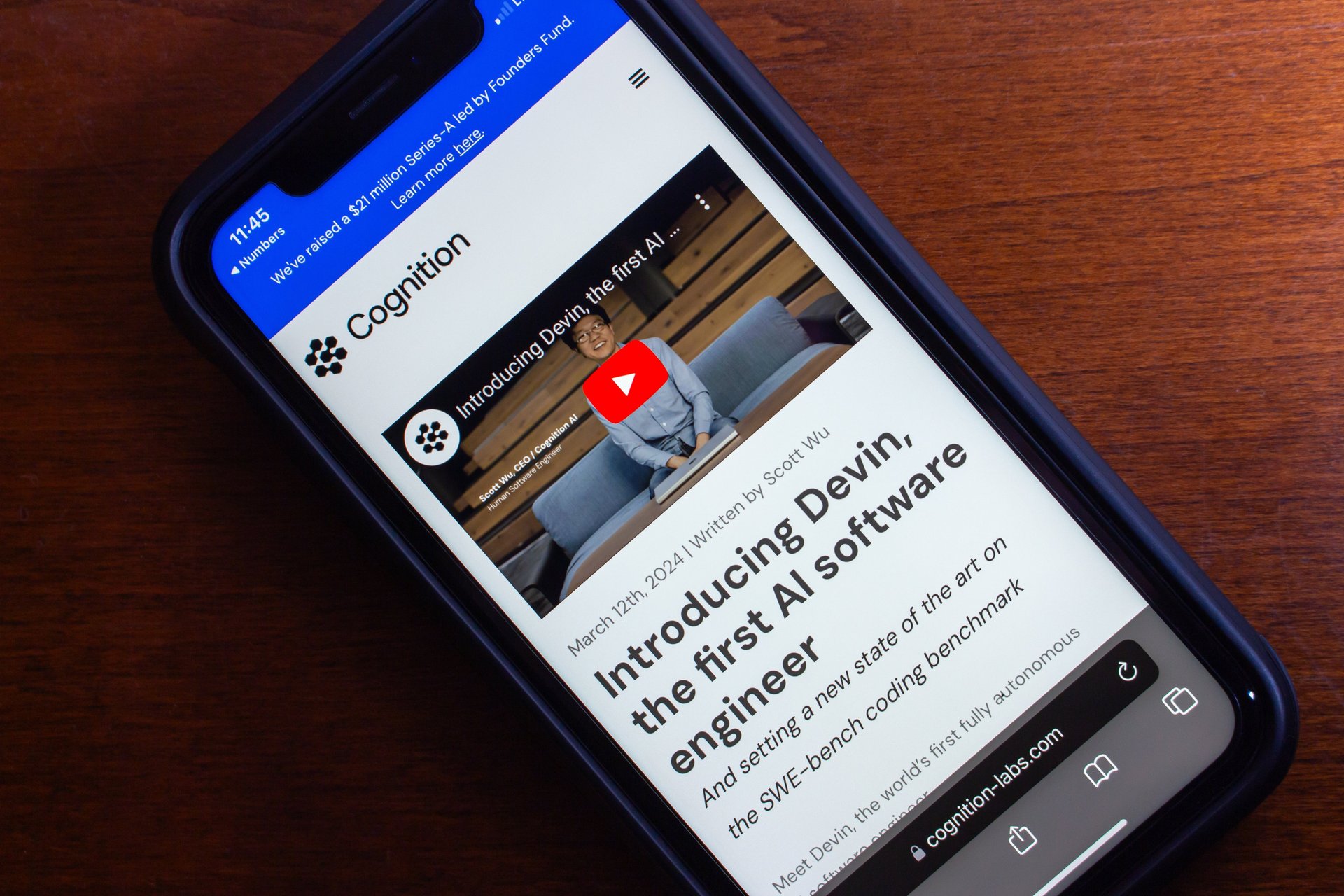An AI startup that's not even 6 months old says it's worth $2 billion
Cognition Labs is building an AI tool for writing code — and seeking a valuation six times its current level

As analysts debate whether high investments and valuations in the AI space are creating a bubble akin to the dot-com bubble of the 90s, a less than six-month-old startup is seeking a valuation in the billions.
Suggested Reading
Cognition Labs, an AI startup founded in November that’s building an AI tool for writing code, is reportedly seeking a valuation of up to $2 billion in its current fundraising round, according to the Wall Street Journal. Earlier this year, the startup was valued at $350 million, after a $21 million Series A round led by Peter Thiel-founded Founders Fund. The fund reportedly plans to invest in the current round. If Cognition Labs completes its current round with the $2 billion valuation, its valuation will have increased sixfold in just weeks. The startup has also reportedly turned down offers of a $1 billion valuation.
Related Content
The startup, which launched what it calls “the world’s first fully autonomous AI software engineer,” Devin, in March, reportedly started working on the product only last year, and currently doesn’t generate any real revenue. According to the startup, its product “can plan and execute complex engineering tasks requiring thousands of decisions,” and has been equipped with developer tools such as code editor and browser — “everything a human would need to do their work.”
With a $2 trillion valuation, Cognition Labs would join fellow young AI startups Mistral AI and Perplexity AI in the billion-dollar valuations club. Cognition Labs did not immediately respond to a request for comment.
After chipmaker Nvidia rode the AI hype to become the first semiconductor company to reach a $2 trillion valuation in February, Torsten Sløk, chief economist at Apollo Global Management, warned that the current AI bubble has surpassed the 1990s dot-com bubble. “The top 10 companies in the S&P 500 today are more overvalued than the top 10 companies were during the tech bubble in the mid-1990s,” Sløk wrote on The Daily Spark.
However, strategists at Citigroup found Nvidia’s stock rally wasn’t something to worry about.
“The AI bubble is not in trouble, and, if anything, earnings performance suggests that it is less of a bubble to begin with,” a team of quantitative strategists at Citigroup said.